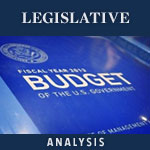SOTU Analysis: Leading the way in energy innovation
In this series of blog posts, Senator Coons’ legislative staff shares their analysis of the President’s State of the Union address with Delawareans.
In his State of the Union Address, President Obama emphasized the importance of scientific research and development, praising innovation and declaring that “we need to invest in the best ideas.” Senator Coons is a passionate believer in the importance of basic and applied science and is a strong supporter of innovative products being developed in Delaware.
President Obama called attention to innovative 3D printing that “has the potential to revolutionize the way we make almost everything.” In Delaware, the revolution has already begun. At the Nemours/Alfred I. duPont Hospital for Children, scientists such as Tariq Rahman and Whitney Sample have used 3D printing to create customizable assistive devices to help children overcome mobility challenges. These cutting edge innovations gave five-year-old Emma Lavelle plastic appendages that allowed her to play and hug her mother for the first time.
Last night, President Obama called for “a level of research and development not seen since the height of the Space Race.” He specified that today, no area holds more promise than investments in American energy. Delaware is once again leading the way, with energy research that is truly paradigm-shifting.
The University of Delaware was named as an Energy Frontier Research Center by the U.S. Department of Energy. An award of more than $17 million dollars will be used to find more efficient ways to convert complex molecules from biomass into chemicals and fuels. UD is also at work fueling innovation in partnership with Advanced Research Projects Agency-Energy (ARPA-E) and the Catalysis Center for Energy Innovation with transformational projects like super-strong magnets and hydrogen-fuel cells. As a member of the Senate Energy and Natural Resources Committee and a leading champion of ARPA-E, Chris will continue to support these game-changing initiatives.
During a recent visit to the University of Delaware’s STAR campus, Chris test-drove a car built by a joint project between the UD and NRG Energy. The car allows rechargeable battery-operated vehicles to also serve as a source of power to the electrical grid. With scientists such as UD professor Willett Kempton leading the way, Delaware at the forefront of realizing the President’s vision.




